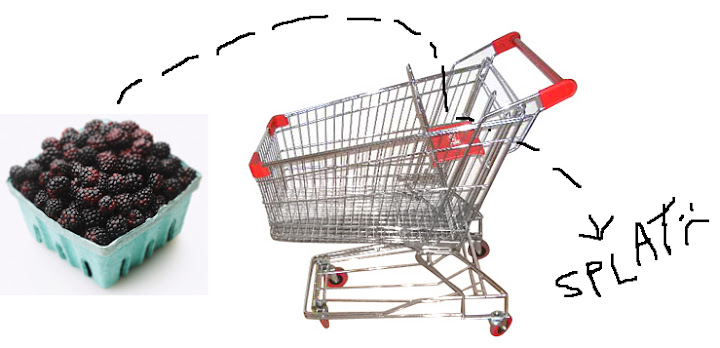
I'm not quite sure what caused it (that recent brain MRI, undergone for a research study, which revealed an unexpectedly noticeable degree of
CSF in my parietal lobe, perhaps?), but I've lately developed an obsession with eating (and cooking) in a brain-friendlier fashion.
My newfound neural neurosis might also stem, in part, from a
research article I read not long ago that discussed the profound effects of malnutrition on the human brain. The study, which used MRI to assess the brains of acutely ill anorexia patients both before and after inpatient hospitalization, reported that brain matter actually atrophies in tandem with starvation-induced weight loss. Fortunately, this (and other) research also suggests that the brain can "grow back", at least in part, with proper weight restoration.
Cerebral sustenanceWhereas the above article offers a more drastic example of how food and nutrients (or the lack thereof) can affect the brain, a July 2008
Economist article discusses subtler, yet more universally applicable, evidence of this phenomenon. Titled "Food for thought", the piece offers various tips on how to "eat your way to a better brain", citing many foods known to enhance learning, improve memory, and protect again age-related cognitive decline.
Such foods include those rich in: omega-3 oils (e.g., salmon, kiwi, walnuts); folic acid (spinach, beans); and antioxidants such as Vitamin C (berries, citrus), Vitamin E (almonds, avocado, vegetable oils), and flavanoids (tea, dark chocolate, red wine). For more details, including a "Brain Food" menu for the entire day, check out the
Economist article
here.
 Upon impact, the carton popped open, berries flew everywhere, pandemonium ensued. My 1st reaction was to giggle and look around nervously to see if there were any witnesses (there weren't). My 2nd reaction was to realize I had quite the crisis of conscience on my hands. I could...
Upon impact, the carton popped open, berries flew everywhere, pandemonium ensued. My 1st reaction was to giggle and look around nervously to see if there were any witnesses (there weren't). My 2nd reaction was to realize I had quite the crisis of conscience on my hands. I could...






